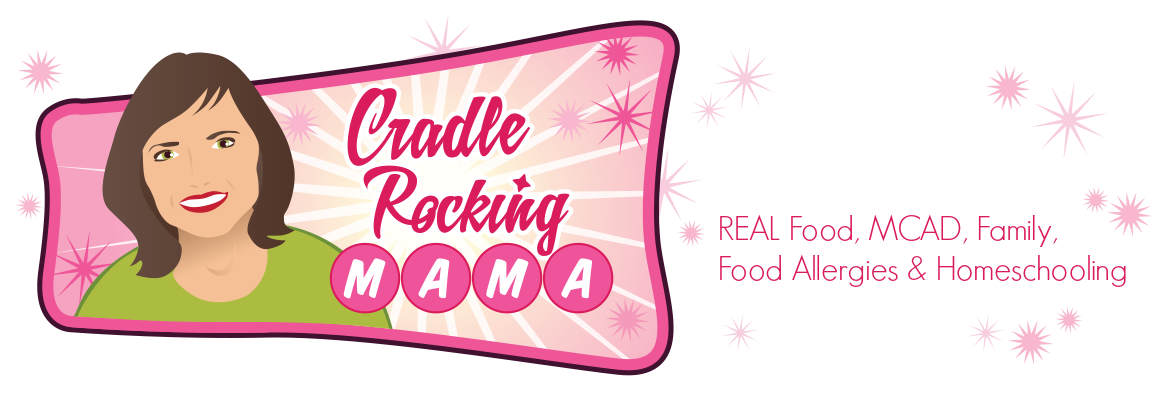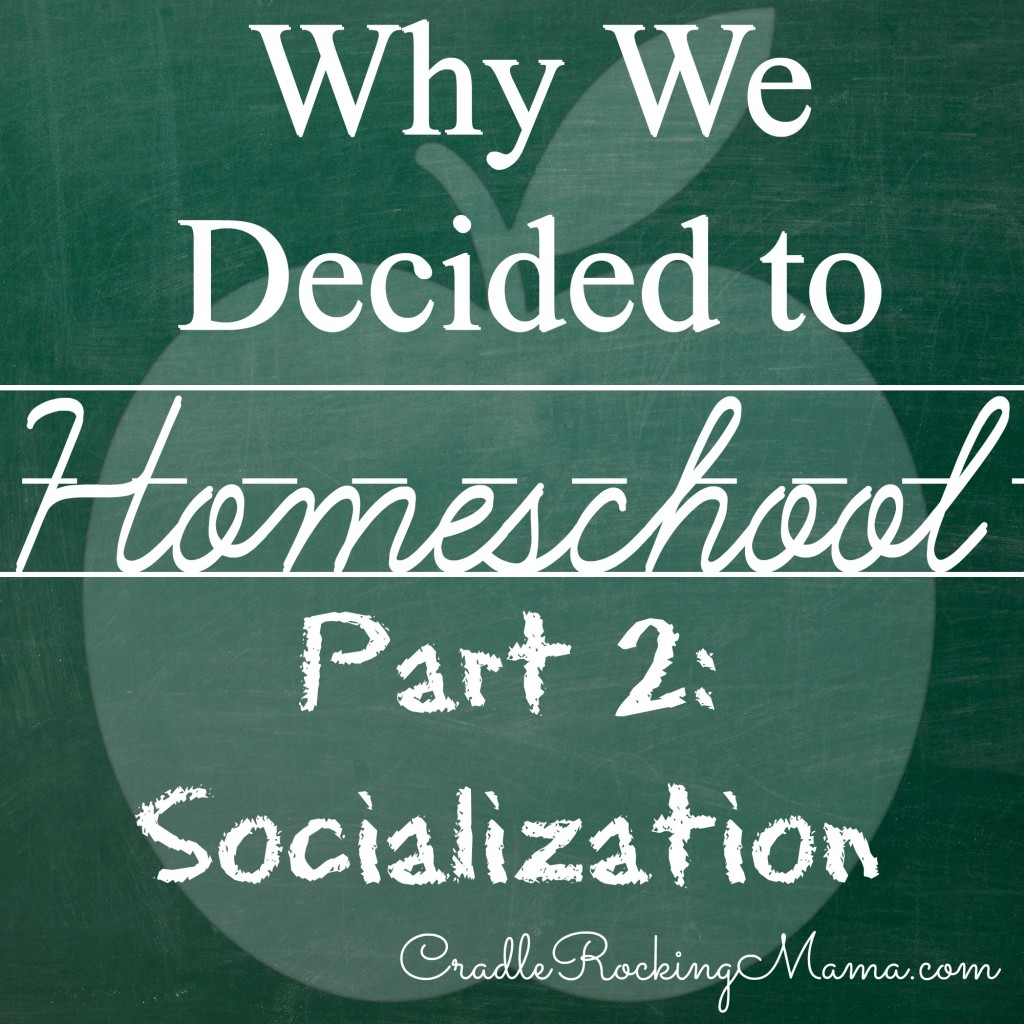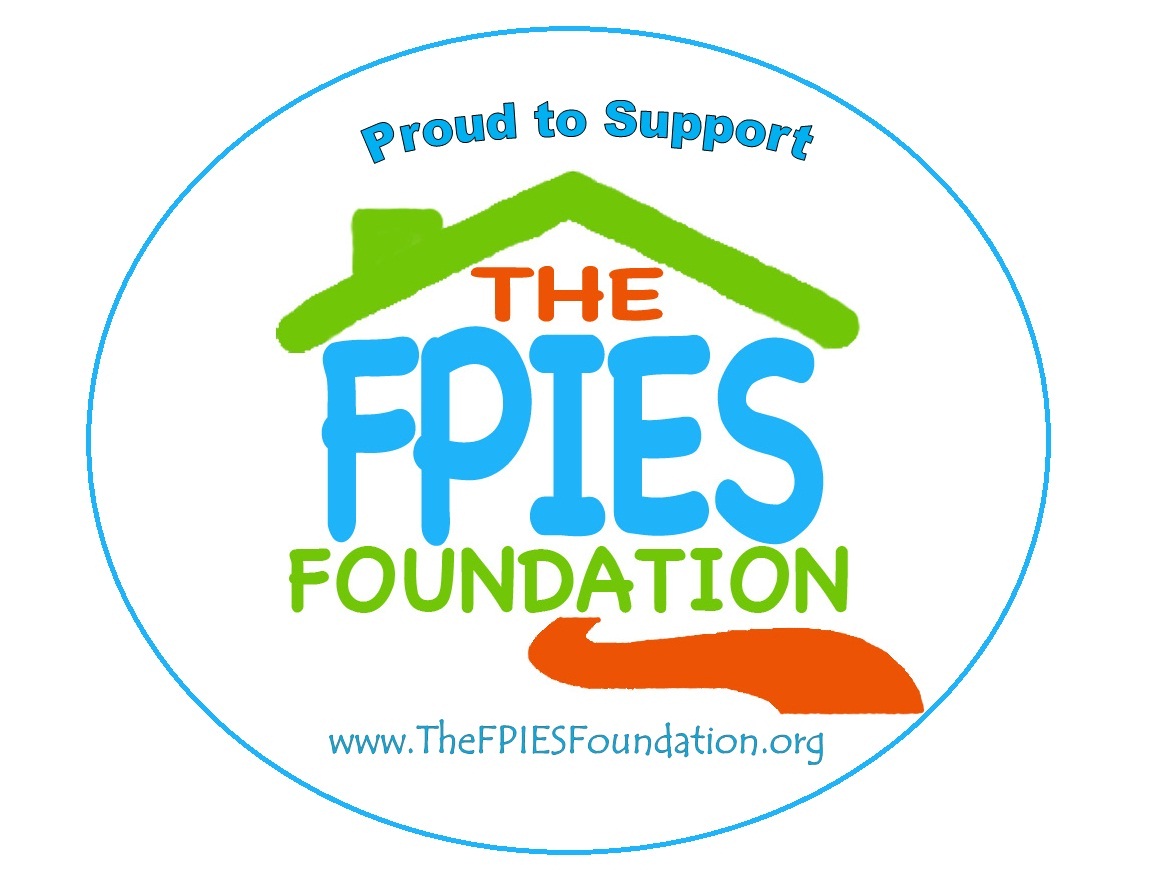One of the most common concerns I’ve heard people express about Homeschooling is this:
What about socialization?
Originally, I shared that concern. How on earth were my kids going to learn how to get along with their peers without being in a public school?
Then I thought about it a bit more.
Let’s start with the definition of “socialize”. From Merriam-Webster:
Full Definition of SOCIALIZE
transitive verb1: to make social; especially : to fit or train for a social environment2a : to constitute on a socialistic basis <socialize industry>
b : to adapt to social needs or uses
: to participate actively in a social group
Dictionary.com defines SOCIALIZATION as follows:
noun 1.
2.
the act or process of making socialistic : the socialization of industry.
Let’s address the widely held belief that the only proper way to socialize children is via public school.
I now have to ask “why?”
Why is public school believed to be the only way to properly teach children how to “participate actively in a social group”?
If you’re anything like me, much of your education in how to participate in a social group did NOT come from your years in public school; instead, it was gleaned from outside activities like church, Girl Scouts, dance classes, etc.
In fact, I would say that the very situation of being in public school makes it nearly impossible for an “individual (to) acquire a personal identity”, considering the well-known fact that schoolyard teasing, cliques, and even bullying are hallmarks of the “social scene” in public schools.
Let’s face it; peer pressure is intense, and school yard teasing can be brutal.
How can a child discover who they truly are and grow confident in their sense of self when at the slightest mis-step they are brutally condemned and even ostracized for their differences?
Sure, most of us survived the school social scene and lived to tell the tale, but how many of us gained our actual inborn sense of self during our school years? How many of us actually gained that self-awareness years later, either in college or during our ’20’s?
The aim of public school socialization might be a development of an individuals sense of self, but the actual outcome is of thousands of children striving for conformity.
Feeling as though one does not “fit in” with peers is the basis for many young adult novels, made for TV movies, and therapy sessions as adults. Do we really feel it is necessary to endure that in order to function in society?
This ties in with our observations of how social interaction with peers has influenced our oldest son, Jed, already.
From birth, Jed was a charming, friendly, engaging little boy who shared everything freely, played nicely, and had an innate sense of right and wrong.
At one of our playground visits, however, he attempted to play with other children in the sandbox. They would not share their toys, grabbed Jed’s toys and refused to give them back, literally turned their backs on him, and generally behaved horribly.
The very next time we went to the playground, Jed mimicked their behavior, much to my embarrassment and chagrin.
We have had to work diligently for two years to help him “un-learn” horrible practices he learned from other children.
I shudder to think what my sweet, kind, loving son would turn in to after years of isolated exposure to other badly behaved children.
That experience was the first time I actually considered what the influence of peers versus the influence of adults would bring upon a child. It helped me to realize that there is an entirely different perspective we should utilize when considering the socialization of our children. We need to ask the question:
how can our children learn to function in the “real world” by being isolated in an artificial situation with legions of other socially ignorant children?
As an example, say you want to learn a new skill. Skateboarding, skydiving, knitting, car repair, or underwater basket weaving, it hardly matters. As a novice, do you seek out the insight and wisdom of other newbies? Or do you search for a teacher/mentor who has plenty of experience in your chosen skill?
I think the answer is clear; experience and wisdom are key to development and growth of any new skill.
Including socialization.
So why is it considered so absurd that a child could be raised and taught at home, thereby primarily learning how to properly socialize in the world from older siblings, parents, aunts, uncles, grandparents, and extracurricular activity leaders? These people have, theoretically, far better social skills than their child’s fellow gradeschoolers!
This perspective would argue that it is BETTER for children’s social skills to be home schooled; not only would they still encounter plenty of children in outside activities, church, and at the playground, but their primary introduction to how to easily communicate and get along with others would come from a wider variety of experienced, seasoned adults.
They would learn how to be comfortable in ANY social setting, regardless of the age and experience of the company they are sharing.
Homeschooling families often view socialization through this perspective, and the studies back them up. This article cites many studies, so click through if you’d like proof.
In the end, Darrel and I have come to the conclusion that the naysayers are right: socialization DOES matter.
That’s part of the reason why we’re choosing to home school our children.
Read the whole series:
Part 1: Concerns About Public Schools
Part 2: Socialization
Part 3: Food Issues
Part 4: The Little (Big) Things
What do you think about socialization?












Pingback: Why We Decided to Homeschool Part I: Concerns About Public Schools - Cradle Rocking Mama
Pingback: Why We Decided to Homeschool Part III: Food Issues - Cradle Rocking Mama
Pingback: Why We Decided to Homeschool Part IV: The Little (Big) Things - Cradle Rocking Mama